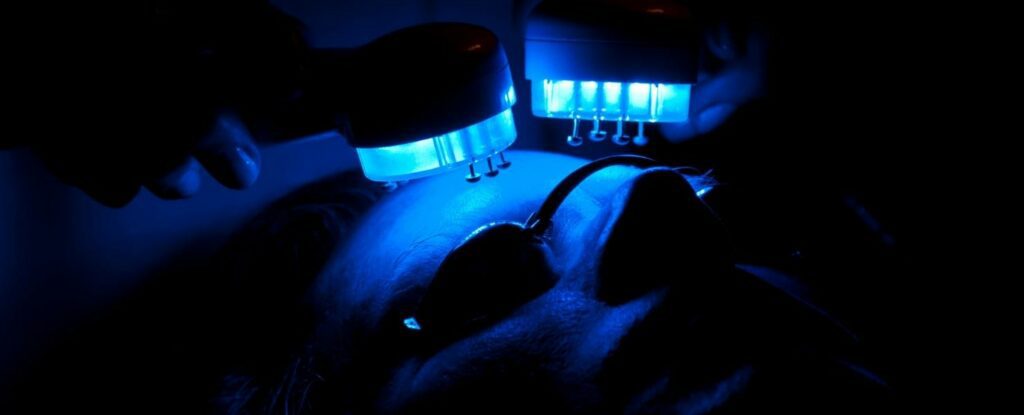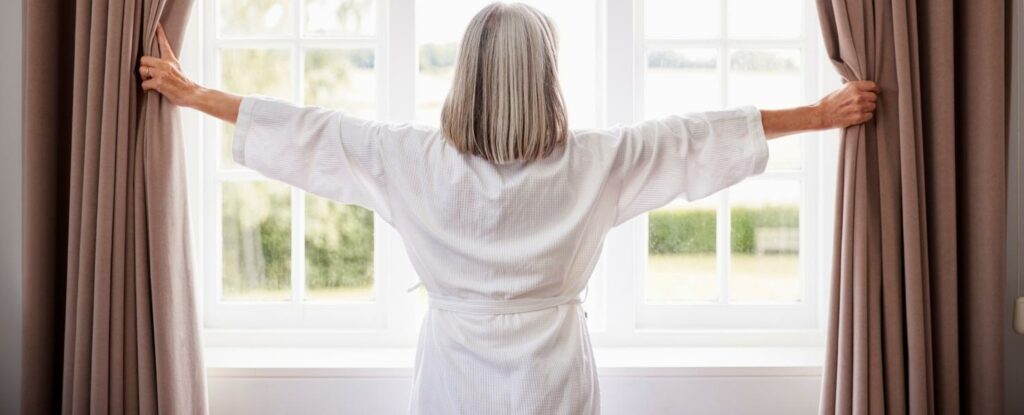Sleep is supposed to come naturally and be a cinch. We do it in the womb, and newborns sleep for about 18 hours per day. And yet, you may find yourself doing more tossing and turning than snoozing at night, begging the question – what can I do to sleep better?
It can be easy to try and shrug it off, but sleep is vital to your health. The CDC recommends people over the age of 18 get at least seven hours per sleep per night. Getting enough rest can help reduce the risks for chronic diseases like heart disease and diabetes, according to The CDC. And it’s not just your physical health that gets affected by a lack of shut-eye. The National Sleep Foundation says there is a link between depression, anxiety and rest.
Of course, hearing this news may only stress you out more. Breathe deep. If you’re struggling with sleep, there are several things to try. From switching up your bedtime routine to ways your doctor can help, here are some top tips for getting a better night’s sleep.
See Your Doc

There are plenty of natural remedies for sleep troubles. But first things first: You want to make sure you don’t have any other conditions that may be getting in the way. For example, obstructive sleep apnea occurs when the airflow from your mouth and nose to the lungs is impeded, resulting in involuntary breathing interruptions and snoring. The condition not only inhibits sleep but can lead to heart disease, stroke and diabetes. Your risk for obstructive sleep apnea increases as you age. Doctors can evaluate you for it and send you for a sleep study to diagnose it. They can also diagnose insomnia, which can open up other avenues for treatment.
Let There Be Light (Therapy)

You typically go to bed when it’s dark. So, hearing that light may flip a switch and fix your sleep cycle may be surprising. But research shows that light therapy is an effective treatment for common sleep conditions, such as insomnia, and can help you sleep better.
Why? Light exposure can help influence our production of sleep-inducing chemicals melatonin and serotonin. Though you can try to increase the amount of sunlight exposure you receive each day, this therapy typically involves artificial light. During a session, you’ll sit in front of a special lightbox for 30 to 40 minutes per day. You can do it at home, and it’s fine to do other things in the meantime. Eventually, you should notice an improvement in your sleep-wake cycles.
Exercise Regularly to Sleep Better

Though experts are still exploring exactly why exercise habits influence sleep quality, the two are linked. Exercise can help you maintain a healthy weight, which reduces your risk of developing obstructive sleep apnea. According to one National Sleep Foundation Poll, people who exercised at least three times per week got longer periods of sleep than those who said they exercised less than once per week.
Try to find something you enjoy. If running isn’t your thing, you may like the low-impact nature of a good swim workout. Exercise classes are also a great way to make and maintain friends. Exercising can be tiring, so it may be tempting to work out before bed. But experts generally suggest not engaging in any vigorous activity an hour before bedtime if you’re looking for better sleep.
Cut Screen Time

For better or worse, our devices have become like fifth limbs. They help us stay in touch with family and friends, but there comes a time to put them out of sight and out of mind. And that time is close to bedtime. Screens emit blue light, which can inhibit the production of melatonin. When our bodies struggle to produce melatonin, falling asleep can become a challenge. Put your phone away an hour before bed, and consider keeping it off your nightstand, so you don’t reach for it out of habit. This is a key tactic when looking to sleep better than usual.
Get In Hot Water

If you prefer to shower in the morning, you may want to mix it up. A 2019 report concluded that people who bathed in water between 104 and 109 degrees Fahrenheit 90 minutes before bedtime had an easier time hitting the hay and could sleep better throughout the night.
Chill Out and Sleep Better

When you have a ton of thoughts and worries running through your head, sleep can be the last thing on your mind. But lack of sleep can only make things worse. Try to do something that relaxes you before bedtime, like taking a bubble bath or reading a light-hearted book. If you’re struggling to cope with stress, help is available. Your insurance company or doctor can help you find a therapist or support group that can help you manage whatever is bothering you.
Take Melatonin

Your body needs to produce melatonin to signal to the brain that it’s time to go to bed. You can help bolster the melatonin in your body by taking a supplement. One study showed that taking a melatonin supplement improved sleep quality and morning alertness in patients 55 and older. Supplements are easily accessible, can be found in pharmacies and food stores, and are a relatively simple method to try to sleep better.
Rethink Your Environment

Too much light and noise can do a number on your ability to fall and stay asleep. Blackout curtains can help keep excess light out of your room. Try using noise-canceling headphones, white noise or soft music to block out street traffic or hard-partying neighbors.
Skip Liquids

A glass of red wine may relax you, but you don’t want to go overboard on it — or any liquid — before bedtime if you plan to sleep better. For starters, alcohol can increase the risk for sleep apnea and snoring and affect your body’s melatonin production. Other fluids, like juice, are full of sugar, and even too much water can have you getting up to go to the bathroom in the middle of the night. Caffeine is a particular no-no. Not only is it a diuretic, but it’s also a stimulant. If you want coffee with dessert, make it a decaf. You’ll thank yourself later.
That said, you may not want your throat to be dry, as that’s uncomfortable. Try to wrap up liquid consumption about 30 minutes to an hour before bedtime, and stick to small sips of water if you feel dehydrated.







